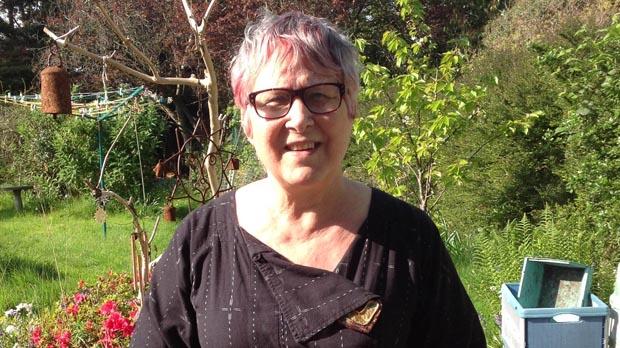
"I was delighted to take part in a clinical trial as it has the potential to really help others in the future.”
Please note - this trial is no longer recruiting patients. We hope to add results when they are available.
This trial is comparing 2 different chemotherapy combinations with or without bevacizumab (Avastin) for a rare type of ovarian cancer called mucinous epithelial ovarian cancer. This trial is supported by Cancer Research UK.
Doctors usually treat ovarian cancer with surgery and chemotherapy. But doctors think that standard chemotherapy drugs used for ovarian cancer are not necessarily the best for this particular type. Mucinous ovarian cancer has a number of similarities with mucinous cancer found in the  . So doctors think that chemotherapy used for this type of cancer might be useful for treating mucinous ovarian cancer. But they are not sure yet.
. So doctors think that chemotherapy used for this type of cancer might be useful for treating mucinous ovarian cancer. But they are not sure yet.
This trial will compare standard chemotherapy with a new combination of chemotherapy already used to treat mucinous cancers of the digestive system. Doctors also want to try a newer drug called bevacizumab that doctors use to treat other types of cancer. Bevacizumab is a type of biological therapy called a monoclonal antibody.
The aim of the trial is to find out
You can enter this trial if you
You cannot enter this trial if
 )
)332 patients will take part in this trial. It is a randomised trial. The people taking part will be put into 4 different groups by a computer. Neither you nor your doctor can decide which group you are in.
If you are in group 1 or 2 you will have carboplatin and paclitaxel. If you are in group 3 or 4 you will have oxaliplatin and capecitabine. The people in group 2 and 4 will also have bevacizumab.
You have the drugs in this trial in 3 week cycles of treatment. Everyone taking part in the trial will have up to 6 cycles of treatment.
Groups 1 and 2 will have carboplatin, and paclitaxel as a drip into a vein once every 3 weeks. Groups 3 and 4 will have oxaliplatin as a drip into a vein once every 3 weeks. They will also take capecitabine as a tablet everyday for the first 2 weeks of each treatment cycle and then one week with no treatment.
If you are in groups 2 or 4, you will have bevacizumab as a drip into a vein on the same day as your other IV chemotherapy drugs. When your chemotherapy treatment finishes you will continue to have bevacizumab once every 3 weeks. You will have up to 12 cycles of treatment.
The researchers may ask your permission get a sample of the cancer tissue that was taken when you had surgery. They will study these samples to learn more about this type of cancer and how the treatment works. If you don’t want to give these samples, you don’t have to. You can still take part in the trial.
You will fill out a questionnaire when you join the trial, during treatment and at some of your follow up appointments. The questionnaires will ask about any side effects you have had and how you have been feeling. This is called a quality of life study.
You see the doctors and have some tests before you start treatment. The tests include

You have your chemotherapy in the outpatient department. You have blood and urine tests before each treatment cycle begins.
You will have a CT scan or MRI scan after your third cycle of treatment and a month after your 6th cycle. After that, you have a scan at week 30, week 42, at the end of the first year, and then every 6 months in the next year and once a year for the following 3 years.
After you finish treatment, you go to the hospital to see the trial team every 6 weeks in the first year, every 3 months in the 2nd year and every 6 months for the next 3 years.
All treatments have side effects. The most common side effects of the chemotherapy drugs used in this trial are
The most common side effects of bevacizumab include
There is more information about the side effects of paclitaxel, carboplatin, oxaliplatin and capecitabine and bevacizumab on CancerHelp UK.
Please note: In order to join a trial you will need to discuss it with your doctor, unless otherwise specified.
Professor Martin Gore
Cancer Research UK
Experimental Cancer Medicine Centre (ECMC)
NIHR Clinical Research Network: Cancer
University College London (UCL)
This is Cancer Research UK trial number CRUK/08/008.
If you have questions about the trial please contact our cancer information nurses
Freephone 0808 800 4040

"I was delighted to take part in a clinical trial as it has the potential to really help others in the future.”